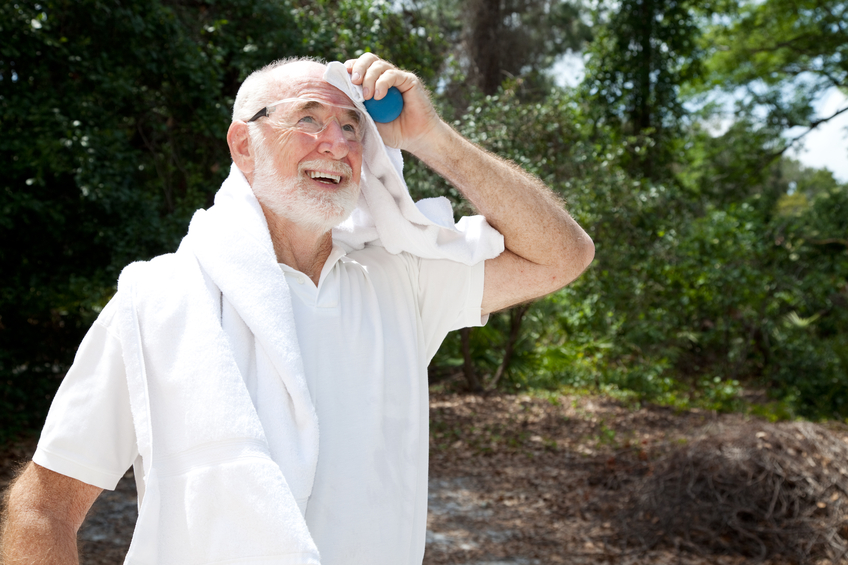As the mercury climbs this summer season, seniors and caregivers of the elderly need to watch out for sign of heat stress. Older adults do not adjust as well to sudden changes in temperature and chronic illness or medications can interfere with the body’s ability to respond appropriately to heat. According to a recent University of Chicago Medical Center study, 40 per cent of heat-related fatalities in the U.S. were among seniors over the age of 65.
Heat stoke occurs when the body’s temperature rises quickly and is unable to cool down by perspiring. It is possible for body temperature to rise up to 106 F or higher within just 10 to 15 minutes. Heat stroke can result in death or disability if not treated quickly.
Signs of Heat Stroke
- High body temperature above 103 F
- Hot, dry skin with no sweating
- Redness of skin
- Rapid heart beat
- Throbbing headache
- Dizziness
- Nausea
Signs of Heat Exhaustion
- Heavy sweating
- Pale skin
- Muscle cramps
- Fatigue
- Weakness
- Nausea
- Headache
- Cool, moist skin
- Fainting
- Fast and weak pulse
- Quick and shallow breathing
Source: Center For Disease Control and Prevention
To prevent heat stroke or heat exhaustion seniors should drink plenty of cool, nonalcoholic, non-caffeinated beverages and rest during the hottest time of day. Taking a cool shower, bath or sponge bath and wearing lightweight clothing can also help prevent heat stress. If the home is not air conditioned, older adults can seek an air conditioned space during the day such as a public library or indoor mall. Avoid any strenuous exercise on the hottest days.
If a neighbor or elderly relative is alone during a heat spell, make sure someone is visiting them regularly to check for signs of heat stress. Elderly adults may not always recognize the symptoms of heat stroke or heat exhaustion; the ability to feel thirst declines with age, and frail seniors may rely on caregivers to ensure they do not become dehydrated. In addition to water, seniors may be encouraged to consume foods with a high water content including fruits such as watermelon, strawberries or cantaloupe. Cucumbers, tomatoes, lettuce, zucchini, radishes cabbage and celery are also hydrating vegetables.
Although many seniors are reluctant to turn on air conditioning, viewing it as a luxury they don’t need, indoor temperatures should remain below 85 F. Try opening windows in the early morning or later in the evening to air out the home and then close windows and drapes to keep out the strong midday sun and heat. If you discover signs of severe heat stress, get the person to a shady area and seek medical help. While waiting for assistance, try to cool the person with a cool bath, shower or wet sheet or by fanning.
To learn more about heat stress in the elderly, visit the CDC website at: http://emergency.cdc.gov/disasters/extremeheat/older-adults-heat.asp .






Add Your Voice
0 Comments
Join the Discussion